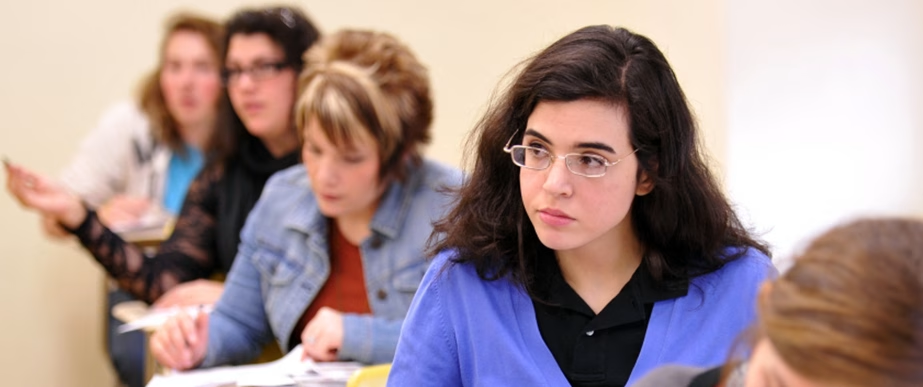The purpose of instruction in the Department of English is to develop graduates who are proficient in analytical thinking, in critical reading of literary and non-fictional texts, and in a variety of writing modes. All graduates should be able to demonstrate their knowledge of features of language, interpretive approaches to literature in English from several periods, and in the writing process.
Courses offered by the department prepare students for reading and writing throughout the college curriculum, for communication in business and professions, for the advanced study and teaching of English, and for careers in professional writing, publishing, and related fields.
BACHELOR OF ARTS IN ENGLISH
120 hours required for graduation (123 before Spring 2013)
GENERAL EDUCATION—35 TO 41 HOURS
MATH REQUIREMENT
Must take MATH 111 or higher.
MAJOR
Option A: Literature—42 hours
Core Courses: ENGL 230, 250, 303, 315, 334, 401, 477
Select one from ENGL 320, 321, 350, or 351 (for students starting Fall 2006)
Select one from ENGL 316, 317, 408
Select one from ENGL 337, 338, 339, 340, 342, 343
Select five (5) additional Literature courses from 300/400 level.
Select four (4) additional Literature courses from 300/400 level (for students starting Fall 2006)
Option B: Professional Writing—45 hours
Core Courses: ENGL 112, 204, 225, 228, 250, 303, 304, 315, 334, 477
Select one from ENGL 230, 255, 306, 401
Select one from ENGL 316, 317, 408
Select one from ENGL 337, 338, 339, 340, 342, 343
Select one from ENGL 227, 430, 431, 432
Select one from ENGL 310, 326, 429
Option C: Technical Writing—42 hours
Core Courses: ENGL 112, 160, 204, 228, 310, 311, 410, 412, 422
Select one from ENGL 317, 325, 345, 360
Select one from ENGL 337, 339, 340, 342, 343, 369
COGNATES—9 HOURS (OPTION A), 15 HOURS (OPTION B), OR 12 HOURS (OPTION C)
Option A: Literature
Six hours in the same foreign language at the 200-level or above, excluding courses on foreign cultures taught in English. Three hours from among British, American, or World History (can be cross-listed with General Education Core).
Option B: Professional Writing
Six hours in the same foreign language at the 200-level or above, excluding courses on foreign culture taught in English. Nine-hour area study in a single discipline or a set of related disciplines, to be designed with and approved by the student’s advisor (twelve-hour area study for those who entered before Fall 2003).
Option C: Technical Writing
Twelve-hour area study in a single discipline or a set of related disciplines, to be designed with and approved by the student’s advisor.
ELECTIVES
To bring total hours to 120 from Spring 2013 (123 before Spring 2013)
MINOR IN LITERATURE—15 HOURS
ENGL 250 and 334; three courses in literature from the 300/400 level.
MINOR IN TECHNICAL WRITING—15 HOURS
ENGL 112, 160, 310, 311, and 202 or 204. (Designed for students in technical or business fields).
MINOR IN WRITING—15 HOURS
ENGL 303; one course from ENGL 230, 255, 401; three courses from ENGL 225, 227, 304, 310, 326, 429, 430, 431.
